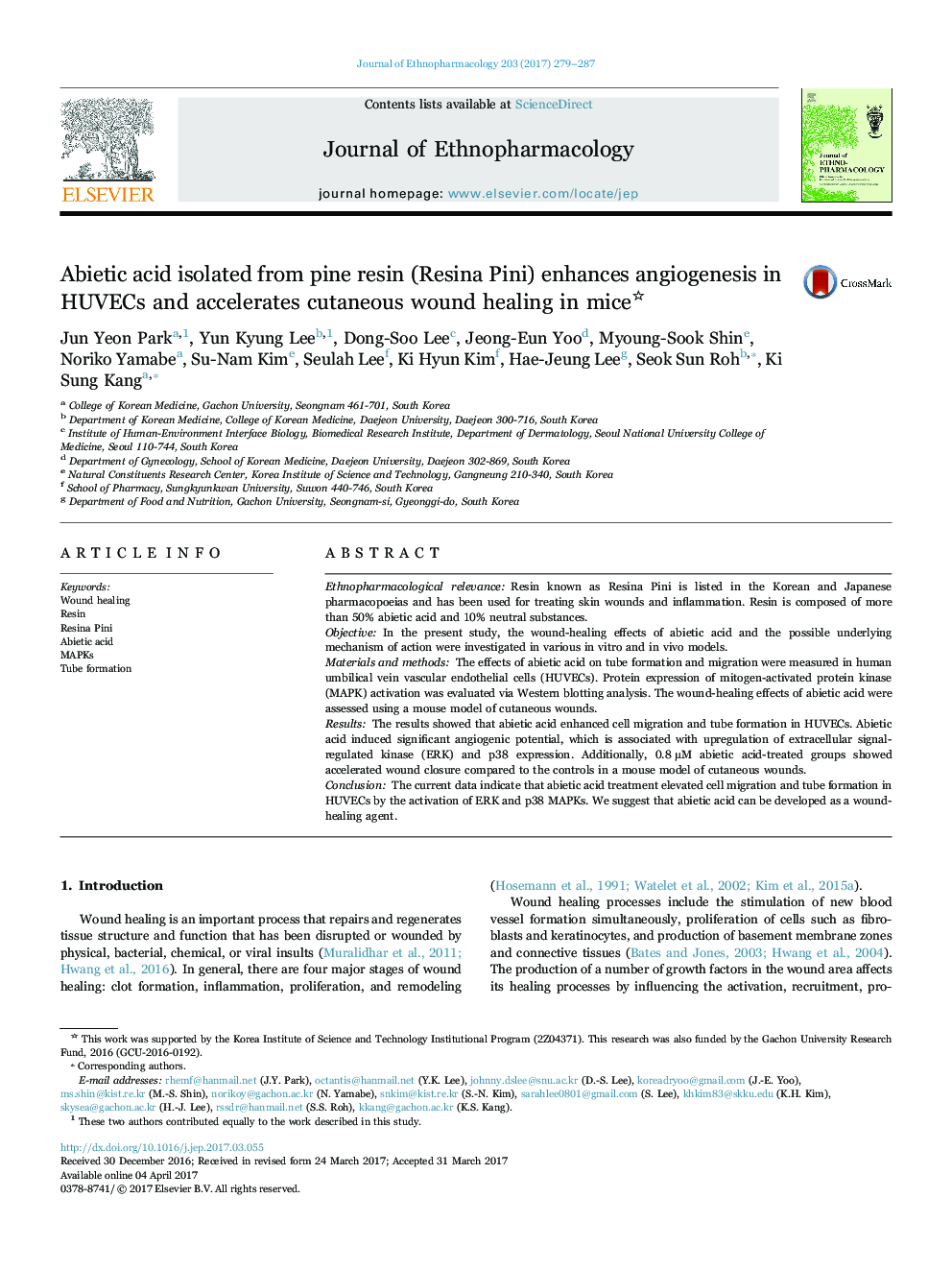| Article ID | Journal | Published Year | Pages | File Type |
|---|---|---|---|---|
| 5556060 | Journal of Ethnopharmacology | 2017 | 9 Pages |
Ethnopharmacological relevanceResin known as Resina Pini is listed in the Korean and Japanese pharmacopoeias and has been used for treating skin wounds and inflammation. Resin is composed of more than 50% abietic acid and 10% neutral substances.ObjectiveIn the present study, the wound-healing effects of abietic acid and the possible underlying mechanism of action were investigated in various in vitro and in vivo models.Materials and methodsThe effects of abietic acid on tube formation and migration were measured in human umbilical vein vascular endothelial cells (HUVECs). Protein expression of mitogen-activated protein kinase (MAPK) activation was evaluated via Western blotting analysis. The wound-healing effects of abietic acid were assessed using a mouse model of cutaneous wounds.ResultsThe results showed that abietic acid enhanced cell migration and tube formation in HUVECs. Abietic acid induced significant angiogenic potential, which is associated with upregulation of extracellular signal-regulated kinase (ERK) and p38 expression. Additionally, 0.8 μM abietic acid-treated groups showed accelerated wound closure compared to the controls in a mouse model of cutaneous wounds.ConclusionThe current data indicate that abietic acid treatment elevated cell migration and tube formation in HUVECs by the activation of ERK and p38 MAPKs. We suggest that abietic acid can be developed as a wound-healing agent.
Graphical abstractAbietic acid which is an active ingredient of rosin exhibited accelerated wound closure when compared with the controls in HUVECs and a mouse model of cutaneous wounds.Download high-res image (347KB)Download full-size image
